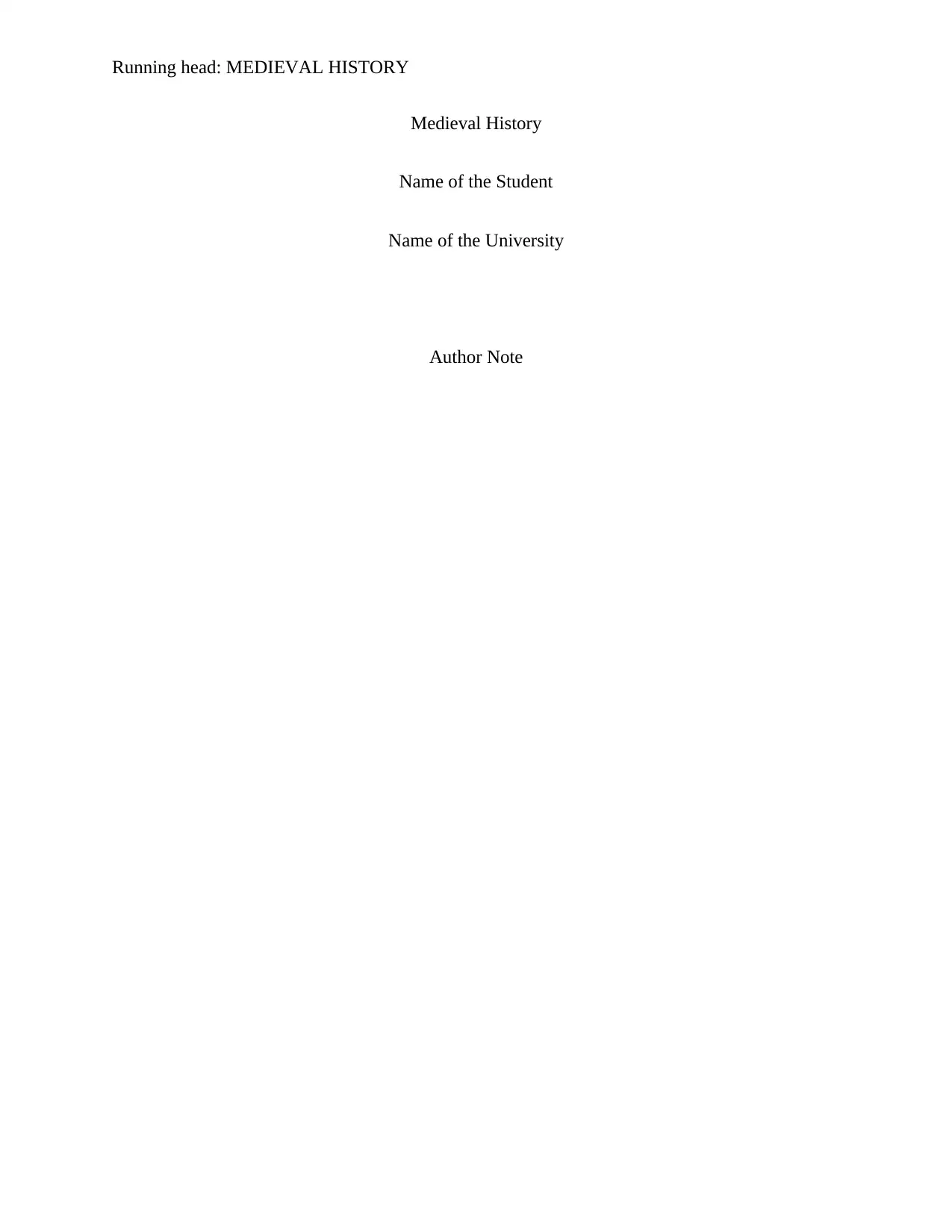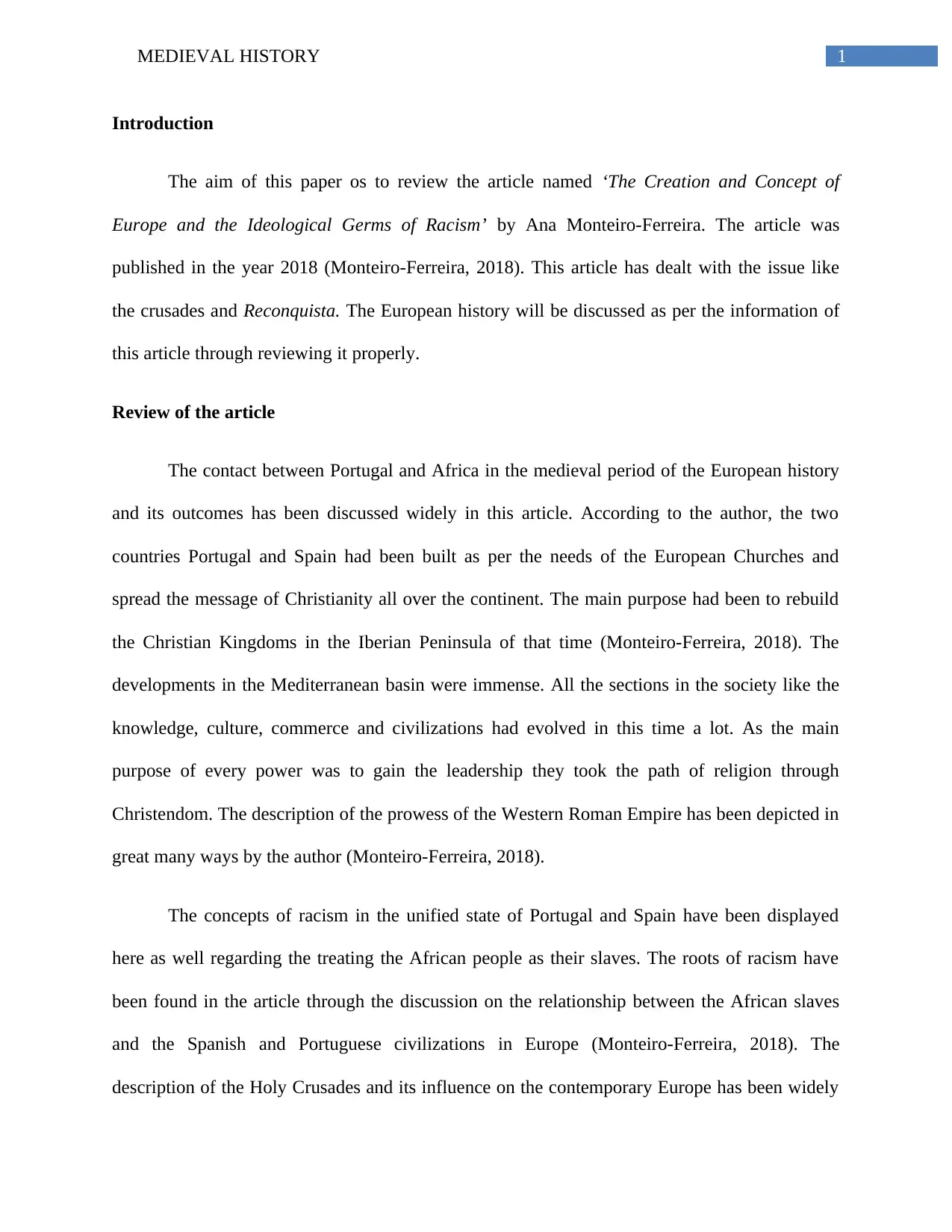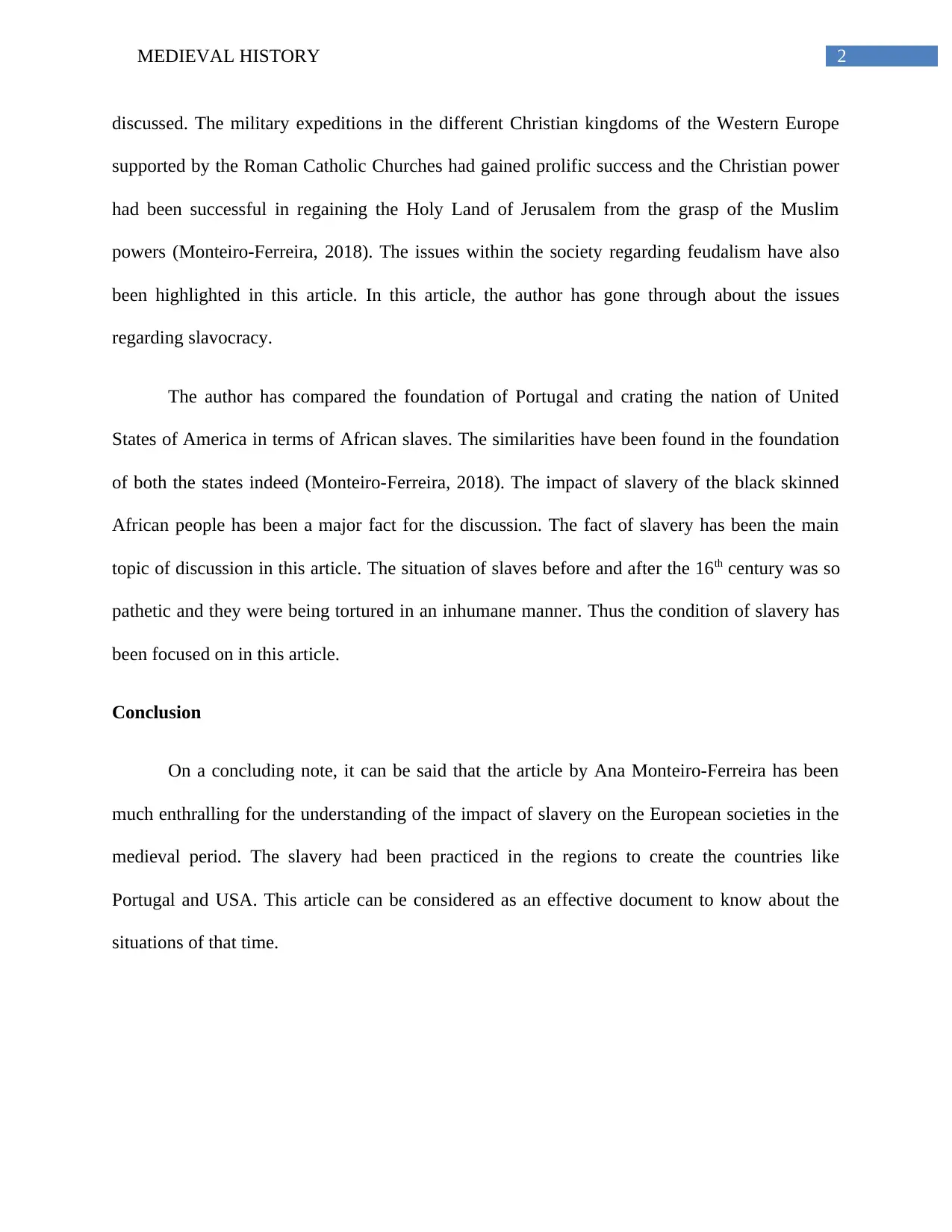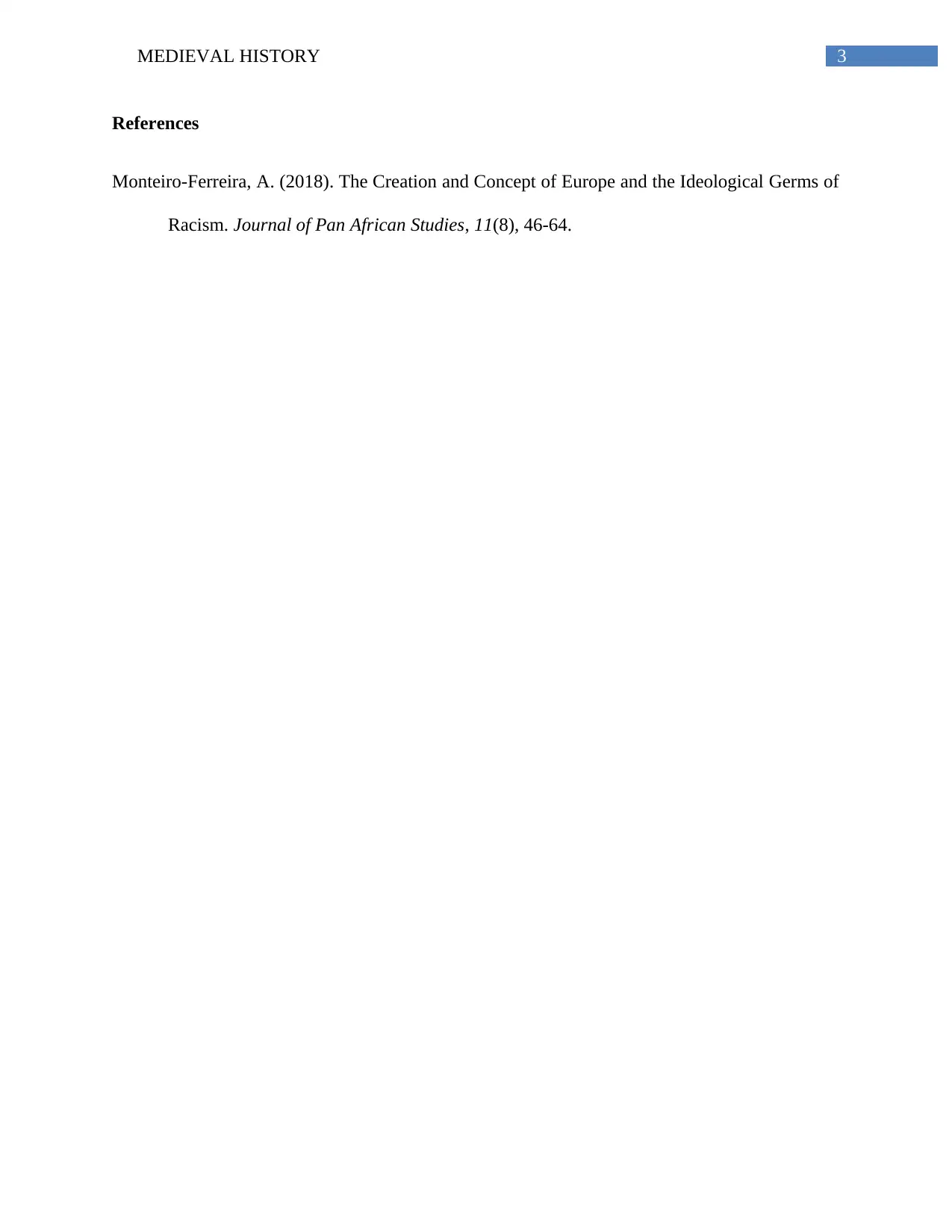Medieval History Report: Reviewing Racism and Europe's Creation
VerifiedAdded on 2023/04/20
|4
|644
|85
Report
AI Summary
This report reviews Ana Monteiro-Ferreira's article, "The Creation and Concept of Europe and the Ideological Germs of Racism." The article explores the historical impact of the Crusades and Reconquista on the formation of Europe and the development of racist ideologies. It examines the influence of the Roman Catholic Church and the treatment of African slaves in Spain and Portugal. The review highlights the article's discussion of slavery, feudalism, and the similarities in the foundation of Portugal and the United States concerning the enslavement of African people. The report concludes that the article offers valuable insights into the impact of slavery on European societies during the medieval period and its role in shaping modern nations. The article's discussion of the historical context provides a comprehensive understanding of the role of slavery and its impact on European societies during the medieval period.
1 out of 4










![[object Object]](/_next/static/media/star-bottom.7253800d.svg)